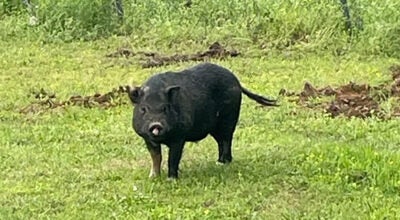Mississippi court rejects man’s claims that Native American heritage allows him to trespass on neighbor’s property
Published 5:30 am Thursday, October 7, 2021
The Mississippi Court of Appeals has affirmed a decision in a dispute over allegations that a man repeatedly trespassed on his neighbor’s rural land.
Curtis Henry Johnson said he had the right to go on the land because he claimed, without providing proof, that he is Native American.
A Holmes County chancery judge in 2019 issued a civil contempt order against Johnson at the request of Paul Benton, and ordered Johnson to pay $5,000 for Benton’s legal costs. The appeals court said Tuesday that the judge ruled correctly.
The Johnson and Benton families own adjoining tracts of land in Holmes County, about an hour’s drive north of Jackson, and their court fight dates back to 2013. Court records show Curtis Johnson’s great grandfather bought the land in 1918 and passed it down to his sons. The Benton family later bought part of it.
Paul Benton said in a court complaint that Curtis Johnson let people hunt on some other nearby land that the Bentons own. He also said Johnson had destroyed a gate on some of the Benton family land, and that Johnson once changed a lock on a gate, blocking Paul Benton and resulting in the loss of a soybean crop.
Johnson said during the court dispute that he was chief of the “Creek Indian Tribe East of the Mississippi” and the property was ancestral land so he could not be trespassing. He also said any dispute should go to tribal court, not state court. But the Mississippi appeals court wrote that Johnson offered no proof of his ancestry when a chancery judge asked for it during a hearing on June 5, 2019, and has not offered it since.
“Curtis testified that he traced his ancestry, which revealed that his family was not African-American but Creek Indian,” Chief Judge Donna M. Barnes wrote for the appeals court. “Later, Curtis testified that he has lived his entire life ‘as an Indian.’ He claimed his great-grandfather Walter L. Johnson, who died in 1970, was a Creek Indian. The chancellor asked for proof, but Curtis responded that he did not bring it to court that day.”
Curtis Johnson also accused Paul Benton of trespassing on tribal land, according to court papers.
The appeals court noted that the Creek tribe was forced to cede homelands east of the Mississippi River in 1832 and to move to what is now Oklahoma.
“Therefore, any ‘Creek Tribe East of the Mississippi’ does not have such a reservation,” the appeals court wrote.
The Creek people are known as the Muscogee Nation. In 1981, the U.S. Interior Department denied a petition from a group in Georgia that sought to be federally recognized as a tribe called the Lower Muskogee Creek Tribe-East of the Mississippi.






